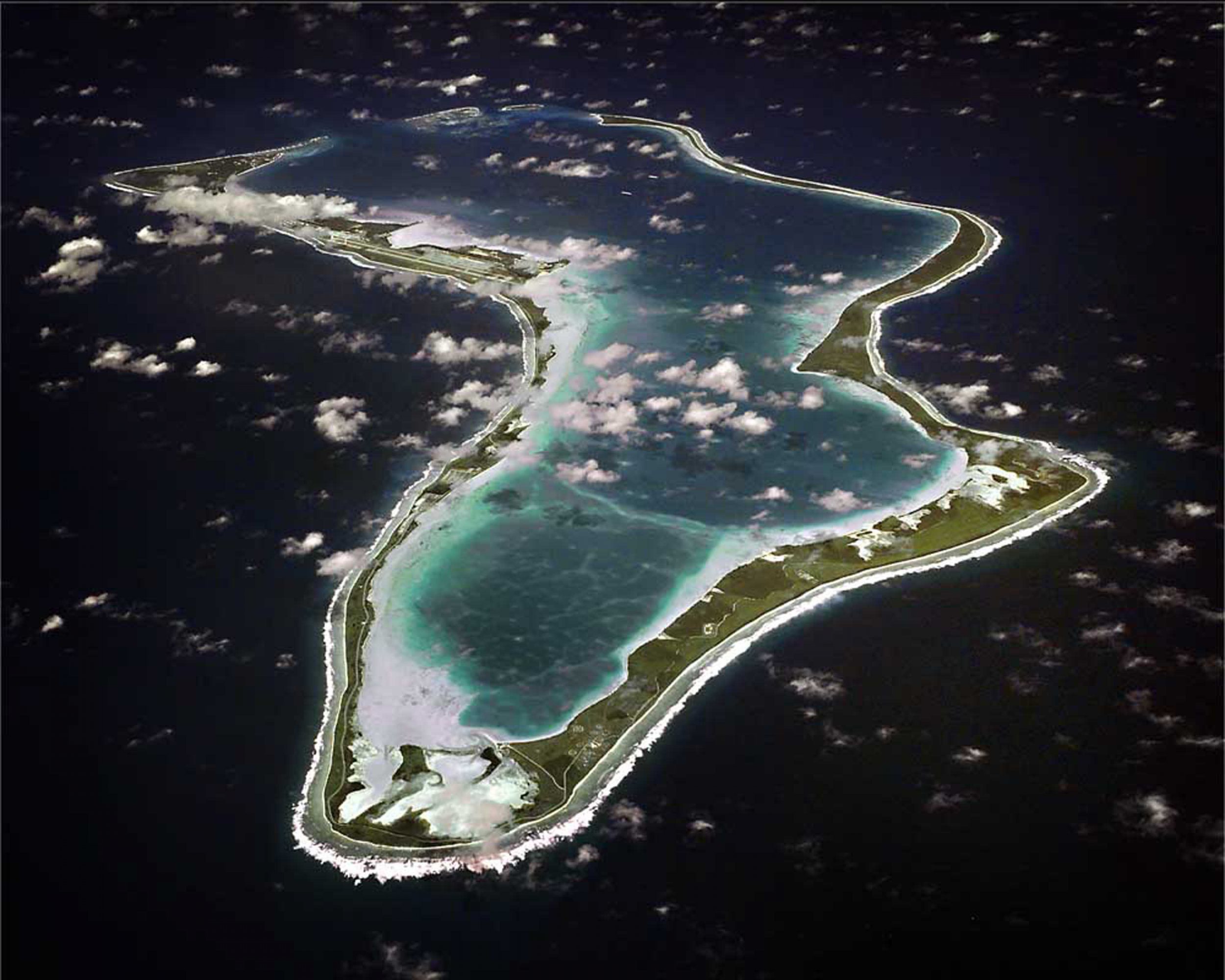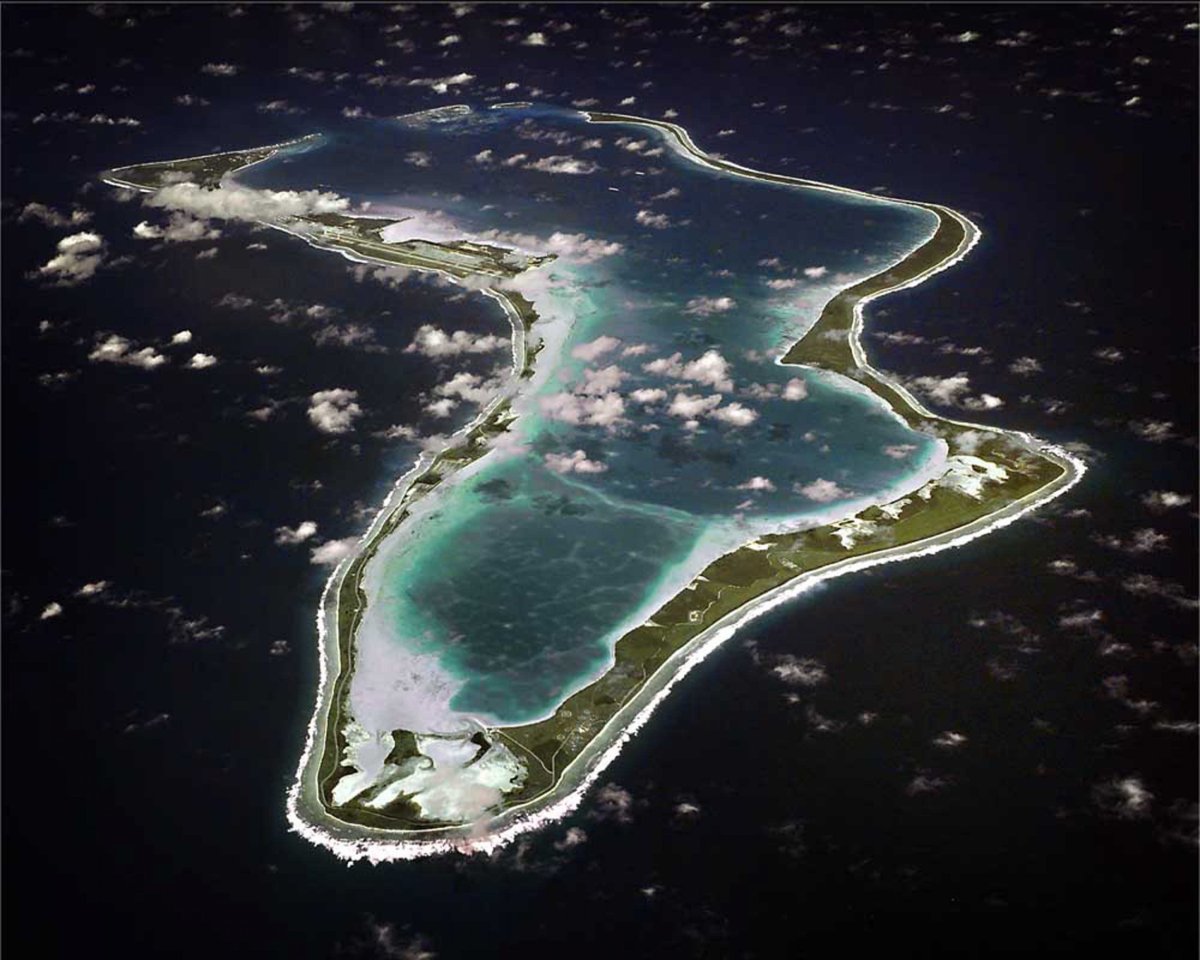
On Monday, the U.S. held joint war games with India near a ring-shaped reef the United Nations says was illegally taken from its native residents.
During the activity, the U.S. and India navies deployed P-8 Poseidon aircraft, joined by the Arleigh Burke-class guided-missile destroyer USS Spruance, to conduct anti-submarine drills near the Chagos Archipelago that comprises 60 islands some 2,000 miles off Africa's eastern coast and 1,000 miles south of India in a stretch of the Indian Ocean still ruled by the United Kingdom. The largest of these islands, Diego Garcia, is home to a U.S. Naval Support Facility leased to Washington by London after the two governments forcibly expelled its residents to nearby Mauritius, once a part of the archipelago under U.K. rule.
The displacement, which took place in the 1960s and 70s, has been the subject of legal controversy. In February, the U.N.'s International Court of Justice ruled 13-1 that "the process of decolonization of Mauritius was not lawfully completed when that country acceded to independence in 1968" because the U.K. retained control of the Chagos Archipelago.
The court advised that the U.K. "is under an obligation to bring to an end its administration of the Chagos Archipelago as rapidly as possible," a development that may spell trouble for the U.S. military presence on a so-called "unsinkable aircraft carrier" that has served a vital role in operations across Africa and Asia.

In a press release issued Thursday, the Navy said that the base at Diego Garcia "provides logistic, service, recreational and administrative support to U.S. and allied forces deployed to the Indian Ocean and Arabian Gulf," also known as the Persian Gulf.
Naval Support Facility Diego Garcia served as a departure point for military assets in both Gulf Wars against Iraq as well as the invasion of Afghanistan in 2001. It is also home to the controversial Camp Justice — since renamed Thunder Cove — reportedly one of numerous "black sites" where the U.S. government has detained suspects held as part of the "War on Terror" launched following the 9/11 attacks in 2001.
A heavily-redacted CIA report released in 2014 drew controversy from human rights groups for not mentioning the Diego Garcia, which the U.K. admitted had previously said played a role in U.S. extraordinary renditions. Among those said to have been rendered were Abdel Hakim Belhaj and his pregnant wife, who were captured by the U.S. in Malaysia in 2003 and sent to back to Libya after longtime leader Muammar el-Qaddafi accused him of being affiliated with Al-Qaeda.
In 2015, the U.K. rejected an appeal by Chagossians to return to Diego Carcia, but two years later the U.N. General Assembly overwhelming voted to refer the matter to the International Court of Justice. President Donald Trump's administration has traditionally taken a hardline stance against the Hague-based judiciary, dismissing a prior ruling in favor of Iran because "the U.S. had a right to defend its national security among other interests."
With an estimated 800 military installations worldwide, the U.S. commands far more than the rest of the world combined. In addition to ongoing deployments in the Middle East, Diego Garcia also served as a platform for deployments in the South China Sea, where the U.S. has accused China of setting up its own military presence on uninhabited islands also claimed by regional Pacific powers.
Uncommon Knowledge
Newsweek is committed to challenging conventional wisdom and finding connections in the search for common ground.
Newsweek is committed to challenging conventional wisdom and finding connections in the search for common ground.
About the writer
Based in his hometown of Staten Island, New York City, Tom O'Connor is an award-winning Senior Writer of Foreign Policy ... Read more
To read how Newsweek uses AI as a newsroom tool, Click here.








